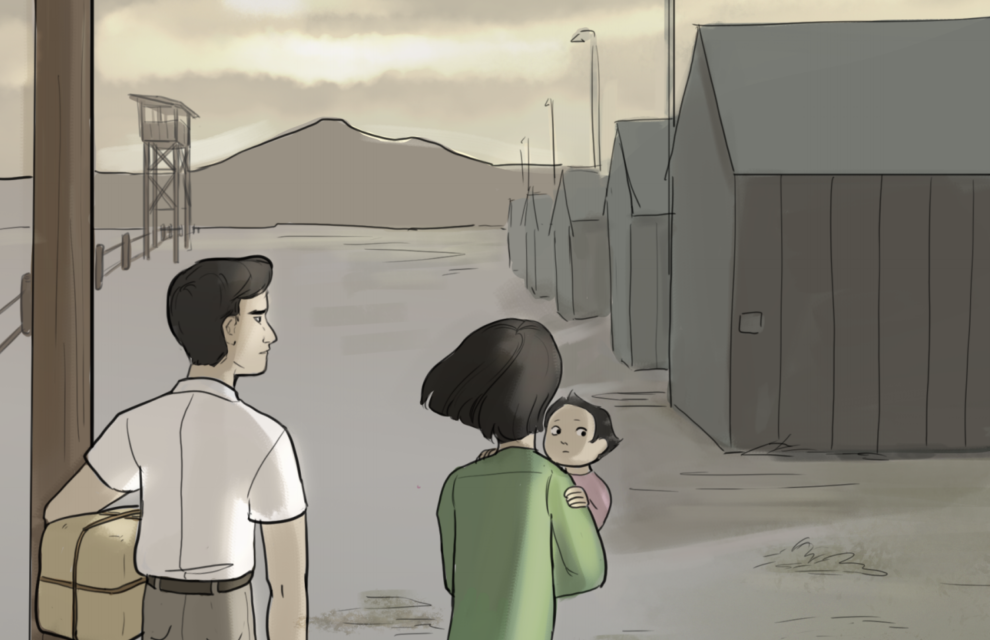Although some parts of history are uncomfortable to talk about, teaching your kids about them will allow you to frame these events in a way that also teaches your values. Your child will also learn that you’re willing to talk to them about tough, important topics.
1 – Understand that teaching hard history is important
It is said that if we do not know history, we are doomed to repeat it. In recent years, it’s become increasingly apparent that we need to put more effort into teaching the tough moments of the past (things like slavery or the WWII Japanese Internment) in an honest way, rather than brushing over the uncomfortable bits (1). Some feel like it’s inappropriate to teach children this history because our bias about the events will show through (2), or they don’t want to expose their children to ugly things, but as a parent it’s your job to teach your child their values and moral compass.
2 – Teach your kids to expect an honest, open dialogue with you
No matter how all-encompassing your conversation about Japanese Internment with your child, probably the most important lesson your child can get from this and similar conversations will be “I’m willing to talk to you about hard things.” It’s very likely they won’t be able to grasp the social, historical and political themes that brought terrible things to pass, but they’ll know you’re always willing to explain it. In fact, that’s one of the primary purposes of the Little-Known Heroes series: to open discussions for you and your child in a natural way.
If your child is the one to bring up one of these subjects, they’ve given you a great deal of trust. If you shy away from the conversation, they might get the message “this isn’t the kind of thing we talk about.” Even if you feel totally unqualified to discuss what they’ve brought up, even telling them “that’s a big, important thing to talk about, and I’d like to learn more about it and we’ll talk about it later,” would teach an incredible lesson! Knowing they can trust you to talk, from a young age, can be very valuable when they’re a teenager and have much harder things to talk about, that involve them (3).
3 – Don’t know what to say? Keep it honest and simple.
Once you’ve started the conversation, the key is simplicity. Answer all their questions and talk through everything you think is important in a way they’ll best understand; we don’t want them to find these conversations discouraging because they’re too confusing.
(It might help you to read up on history yourself, because the more thoroughly you know it the more simply you can explain it. Check out our resources to learn about Japanese Internment here as a start.)
You’ll notice that in the Little-Known Heroes books we’ve tried to boil these topics down to concepts children are familiar with. For instance, when talking about Japanese Internment we talked about how unfair it was that Frank Emi and his family were locked away just because of how they looked. Talk to your child about pain and heartache of war or injustice by relating it to the pain and setbacks they’ve already experienced.
4 – Use tough history to teach them positive values
As their parent, don’t be afraid to also tell them why atrocities and injustices were wrong. Teach them to spot and combat injustice and unfairness when they see it. If racism was wrong in the Civil Rights Era, it’s still wrong today, and they can become the type of people who would’ve stopped it back then.
As you teach them how to behave, make sure to put in a real effort to live those values yourself. Let your child see you stand up to injustice. After all, you’re likely their first and most important hero.
5 – Find heroes for your child in the tough history
Speaking of heroes, when discussing uncomfortable or embarrassing history, take the time to point out the heroes we find there. Let your children idolize the real people who stood up to unfairness and violence, not just fictional comic book heroes. The Little-Known Heroes books feature some of these incredible people, but there’s plenty more; do some research and find their stories to give yourself, and your child, inspiration and hope.
References
- Baumann, T., Hurley, A., Altizer, V., & Love, V. (2011). Interpreting Uncomfortable History at the Scott Joplin House State Historic Site in St. Louis, Missouri. The public historian, 33(2), 37-66.
- James, J. H. (2008). Teachers as protectors: Making sense of preservice teachers’ resistance to interpretation in elementary history teaching. Theory & Research in Social Education, 36(3), 172-205.
- Landry, S. H. (2008). The role of parents in early childhood learning. Encyclopedia on early childhood development, 1-6.
- Also see: http://www.child-encyclopedia.com/prosocial-behaviour
